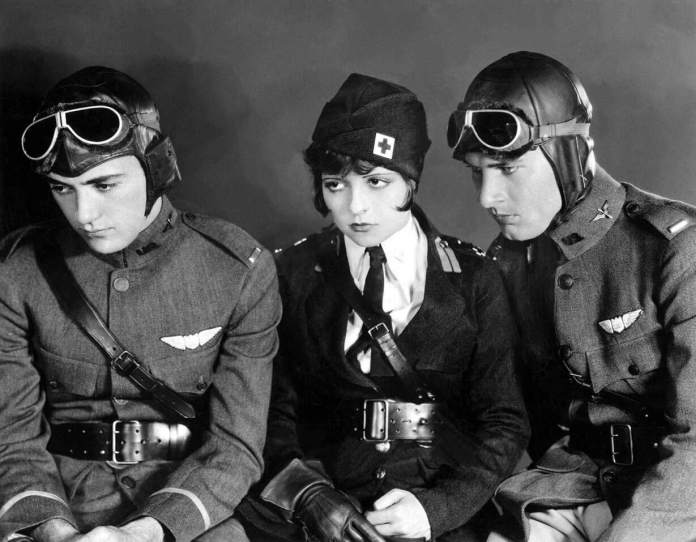
Face it: the Oscars are Hollywood’s most glamorous red carpet, but winning gold doesn’t necessarily translate into making it into pop culture’s collective memory. Yes, The Godfather and Titanic are name-checking entries in every household, but what of those Academy Award winners that seem to have fallen through the cracks? For die-hard film buffs, the ones who love discovering and rediscovering lost gems, these films are proof that Oscar history is replete with gems to be revisited. Below are 10 forgotten Oscar winners every film enthusiast must get in line, presented here in reverse order just to shake things up.

10. Traffic (2000)
Steven Soderbergh’s Traffic is a frenetic, sprawling map of the illegal drug trade, constructed from interwoven stories on either side of the U.S.–Mexico border. Fuelled by powerhouse performances from Benicio del Toro, Michael Douglas, and Catherine Zeta-Jones, the film’s brilliance lies in Soderbergh’s unblinkingly direct visual storytelling, color-coded chronology, hand-held camerawork, and refusal to gloss over harsh reality. It took Best Director and Best Adapted Screenplay, but it’s rarely spoken of in terms of modern classics. This is Soderbergh’s finest work.

9. Affliction (1997)
Melancholy but unshakeable, Paul Schrader’s Affliction digs deep into the self-destructive cycle of abuse. Nick Nolte plays a crumbling figure in the shadow of his abusive father, James Coburn, with an Oscar-winning ferocity. The supposed murder mystery is window dressing; the true story involves trauma, anger, and inheritance. Coburn’s performance alone makes it worth seeing.

8. Dangerous Liaisons (1988)
Before Cruel Intentions, there was Dangerous Liaisons. Glenn Close and John Malkovich are sumptuously evil, playing evil tricks on young Michelle Pfeiffer and Uma Thurman, with Keanu Reeves in one of his earliest roles. This decadent period drama won Oscars for screenplay, art direction, and costume design, handing out scheming, betrayal, and decadent spectacle in generous equal measures.

7. Ordinary People (1980)
Robert Redford’s directorial debut is a lesson in restraint. Ordinary People tracks a grief-stricken, upper-middle-class family as they unravel under the weight of loss and unspoken shame. Starring career-best performances from Mary Tyler Moore, Donald Sutherland, and Timothy Hutton, the movie swept Best Picture and Best Director without anybody realizing it. It’s a reminder that the Academy sometimes prefers a preference for intimacy over spectacle.

6. Alice Doesn’t Live Here Anymore (1974)
Martin Scorsese comes to mind as the go-to director of crime epics, but Alice Doesn’t Live Here Anymore is softer. Ellen Burstyn took home her Academy Award playing Alice, a widow fighting through difficult times as she goes after her dream to be a singer. More character than story, the film captures the comedy, misery, and dignity of life day to day.

5. Klute (1971)
Jane Fonda gave a career-best performance in Klute, which earned her the Best Actress Oscar as Bree, a call girl who becomes embroiled in a suspenseful investigation by Donald Sutherland’s detective. The movie reeks of paranoia, reflecting the atmosphere of 1970s America, and Fonda’s “nervous intensity” lends the narrative both grittiness and vulnerability. It’s a time capsule of the era of New Hollywood.

4. How Green Was My Valley (1941)
Too often overshadowed by the record that it overcame Citizen Kane as Best Picture, John Ford’s How Green Was My Valley stands on its own merits. This poetic tale of a Welsh family of miners is full of lyrical dialogue, sumptuous cinematography, and poignant meditations on loss and memory. It is subtle, affecting, and ageless.

3. Rebecca (1940)
Alfred Hitchcock’s first American movie, Rebecca, is a ghostly romance of jealousy and obsession. Joan Fontaine plays the second Mrs. de Winter, dwarfed by her husband’s deceased wife’s shadow, while menacing Mrs. Danvers watches from the wings. Winner of Best Picture, this classic horror film is brimming with atmosphere and infused with subtext that continues to generate debate today.

2. The Awful Truth (1937)
Screwball comedy of the highest order, The Awful Truth features Cary Grant and Irene Dunne as a divorcing couple who can’t seem to shake each other. Their behavior is clever, engaging, and side-splittingly funny, with the movie testing the limits of Hollywood’s strict Hays Code. Director Leo McCarey won an Oscar for this gem of a comedy, which remains witty more than nine decades later.

1. Wings (1927)
The inaugural Best Picture winner, Wings, is a silent film that set the bar for filmmaking innovation. Its stunning aerial combat sequences and legendary dolly shots are still the stuff of legend. Starring Clara Bow, Richard Arlen, and Charles “Buddy” Rogers, the movie preserves both the excitement and drama of World War I. A milestone, to be sure, Wings is also a must-see for anyone serious about the history of film.

Theo’s movies tell the story that winning an Oscar is not only about being popular, but also it is about the quality of work, being original, and sometimes being under the radar. They all have something new to offer to filmmakers through their history by means of these movies, even though they used to be less popular and then a bit forgotten in the cinema world. What if you have claimed yourself as a film lover, then why not withdraw the blockbusters for one night and watch these forgotten masterpieces again? Not only that, but you will also find the quieter Academy awarding its wins.